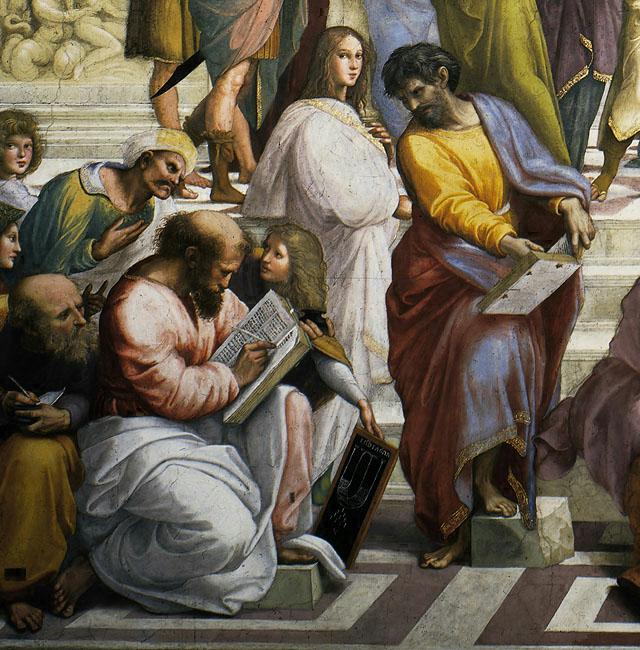 |
| Averroes (in turban); detail, "School of Athens" (Raphael) |
This was an obvious parallel to Aristotle's Realism: the idea that there exist "universal" abstract concepts—such as "dog"—outside of our direct experience, that allow us to directly experience multiple different dogs with different characteristics (which he called "particulars") and yet understand that they were all dogs.
Averroes explained this further, and created a religious controversy.
If the active intellect was external (and from a divine source) but the less-powerful passive intellect resided in man, and it was the blending of the two that created personality and human intelligence, then what happens at death when the external active intellect is removed? As a divine and lasting and (presumably) unchanging force, it stays as it is, unaffected by its temporary connection to an individual. The human-centered passive intellect dies with the human, the active intellect withdraws, and therefore there is no individual personality that exists anymore.
For Averroes, understanding Aristotle meant that there was no survival after death of a personality. Your personality—what makes you "you"—is gone when you die, and there is no room here for a soul with your personality to exist in an afterlife.
Orthodox Mohammedan theology did not agree with this, nor did Christian theologians such as St. Bonaventure and St. Thomas Aquinas.
Averroes defense against the charge of heresy? That reason forced him to express these thoughts, but that of course he adhered to the truth as explained by his faith.
*Aristotle used the term "intelligences" to refer to the non-physical (divine, or spiritual) forces that moved the celestial spheres. Christian thinkers would later call these "angels."



